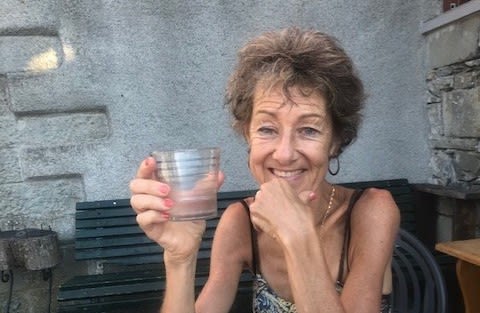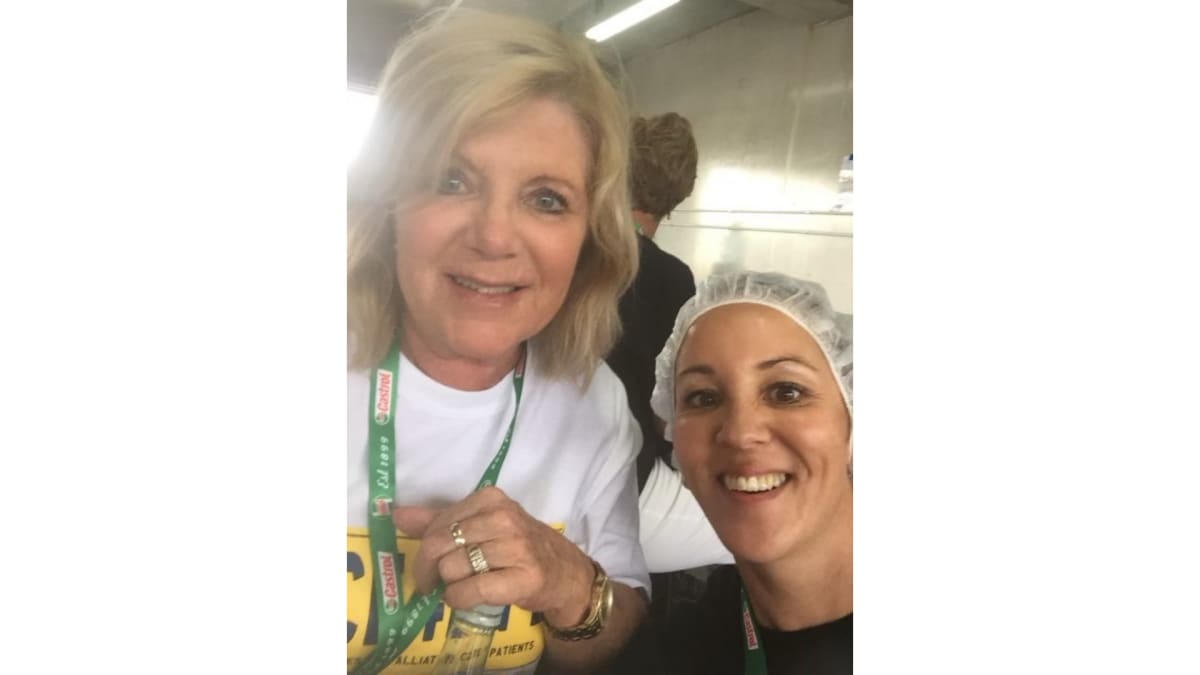
FIRST PUBLISHED OCT 15, 2021. By Matthew Scott
After 18 months of Covid have stretched already thin margins to breaking point, a charity that seeks to give a little joy to Kiwis at the ends of their lives is looking for life-saving treatment
Kim Blacker-Wong first noticed the lump on her mum Diane Wong’s neck when they were sitting on the deck at Mangawhai having a wine on New Year’s Eve a few years ago.
“What’s on your neck, mum?” She asked.
“It’s been there a while,” her mum told her.
“I’ve told her to bloody get it looked at,” her dad added.
Three months later she was diagnosed with breast cancer and told she had less than two years to live.
“It was pretty earth-shattering,” Blacker-Wong said. Suddenly, her 62-year-old mum wasn’t going to be around to see all of her grandkids grow up.
But the last thing her mother wanted to do was sit on her laurels and wait for the end.
“She was like ‘Well, I’ve been given some time – some people don’t get time. Let’s do something with it.”
She started planning her daughter’s wedding, a family vacation to Hawai’i and raising money for breast cancer awareness.
In Wong’s last months she ticked items off the bucket list like a trip to the South Island she had planned with childhood friends since they were 12 years old.
But just because you’ve made the resolve to use the limited time you have left, that doesn’t necessarily mean you have the means to make it happen.
For hundreds of Kiwis who have received the worst news possible in a doctor’s office, the charitable trust Race4Life has been there to make sure their final days have a bit more to look forward to than a never-ending routine of medical appointments.
Something like the Make-a-Wish foundation for adults, Race4Life has granted the wishes of 600 terminally ill Kiwis over the last six years.
Blacker-Wong remembers taking her mum to one of Race4Life’s yearly events at Hampton Downs, where people in palliative care are given a day out where they can think about something other than their impending farewell.
Adrenaline can be a fair distraction, as the terminally ill are taken around the track in supercars, motorbikes, helicopters and jet packs.
Blacker-Wong said the image of her mum clinging to the back of a man on a Harley, gunning it around the track with a huge smile on her face will stick with her forever – and the grandkids still put on the video to remember their grandmother.
“If you look at the calendar of somebody with cancer, you’ll see date after date of oncology appointments,” Blacker-Wong said. “But for mum, she had these moments of great elation – she was so happy, she forgot to take her pain medication.”
But now it’s the charity itself that may be on its death bed.
Before the pandemic, it was gaining huge momentum, with a 570 percent increase in the amount of wishes it was able to grant between 2015 and 2019.
But the realities of life under pandemic restrictions have left its future uncertain.
“In 2019, we covered 141 wishes,” said Race4Life founder and general manager Viv James. “Then Covid hit.”
Charities across New Zealand have been hurt by the disruption of fund-raising activities. At the same time, Covid has highlighted the importance of the role charities play in society, making enormous impacts on the lives of vulnerable people.
“We appreciate lockdowns have a significant effect on some charities in New Zealand as they continue to fundraise, and acknowledge that for some this will be the second year in a row where their traditional fundraising activities are disrupted,” said a spokesperson from the Department of Internal Affairs.
A survey conducted by Hui E! Community Aotearoa found 74 percent of organisations in the voluntary sector took a financial hit during last year’s lockdown.
“We have never worked so hard with so little,” said one respondent. Despite the tough times, Hui E! reported the sector was rallying and in many cases managing to do more with less.
For Race4Life, the next few weeks are life or death.
The charity needs $300,000 to keep going and ensure they can keep granting the wishes of terminally ill New Zealanders into the future.
“There’s more than 27,000 charities in New Zealand,” said James. “The Government has supported us to a point, but they do have to make choices.”
This leaves many organisations like Race4Real in the insecure position of relying on public support.

Viv James began Race4Life in 2015 after working in a hospice and seeing the need for a little light at the end of life for terminally ill Kiwis. Photo: Supplied
It’s precarious place for organisations that play a vital role in society – not just in providing charitable services, but also in terms of brass tacks economics. A recent report from JBWere found the sector was worth $12.1 billion to New Zealand’s GDP in 2018.
The report found already-thin operating margins had been stretched even further by the pandemic – especially for organisations that relied heavily upon events, which reported a 50 percent loss of revenue.
At the same time, Race4Life has over 30 people on the waiting list, with wishes like a family trip to the Kapiti Coast and driving hot laps at Highlands motorsport park in Central Otago.
And the nature of the game is that sometimes these charities services are uniquely time-sensitive.
“They are getting imminently sicker,” James said.
She said the charity fills a gap in New Zealand society, in terms of helping the terminally ill out with more than just the essentials.
“There are no words for the impact this makes,” she said. “It changes society a little bit – there’s a flow-on effect. A cycle of giving and receiving.”
The charity is able to grant many of the wishes based on the kindness of people within the tourism and hospitality sectors. But with those sectors the hardest hit by the pandemic, Race4Life has found costs on the rise – and accordingly found it harder to grant certain wishes.
And while the public healthcare system does its best to cater to the needs of terminally ill New Zealanders, there are things that remain out of reach for many of them.
The financial leeway to spend some time with their loved ones and hopefully lay down their worries for a moment or two is high on that list.
For Loretta Taylor, the gift of a trip to Queenstown with her husband and two young children brought hope and joy into her life after she was diagnosed with an inoperable brain tumour at the age of 29.
Race4Life’ James said many of the wishes were focused on spending quality time with family before it’s too late. “You end up seeing such fantastically cherished memories,” she said.

Kim Blacker-Wong (right) pictured with her mum, Diane Wong. Photo: Supplied
When Blacker-Wong’s mum died in 2017, there was a bright side she was able to turn to. She had the memories of her mum’s smiles in her last months. With the help of Race4Life, the effect of losing her mum isn’t all pain and gloom – there’s a bittersweet aftertaste that cuts through.
And after her mum passed, Blacker-Wong put up her hand to volunteer for the charity herself – offering her skills as a hairdresser for free.
She said it’s a situation that affects everybody eventually, so it should behove every Kiwi to help out.
“Everybody has been affected by cancer or a terminal illness in some way,” she said. “And if we give these people just a little time, we can give them a breather. That’s worth more than a million dollars, sometimes – just a little time.”

No Comments